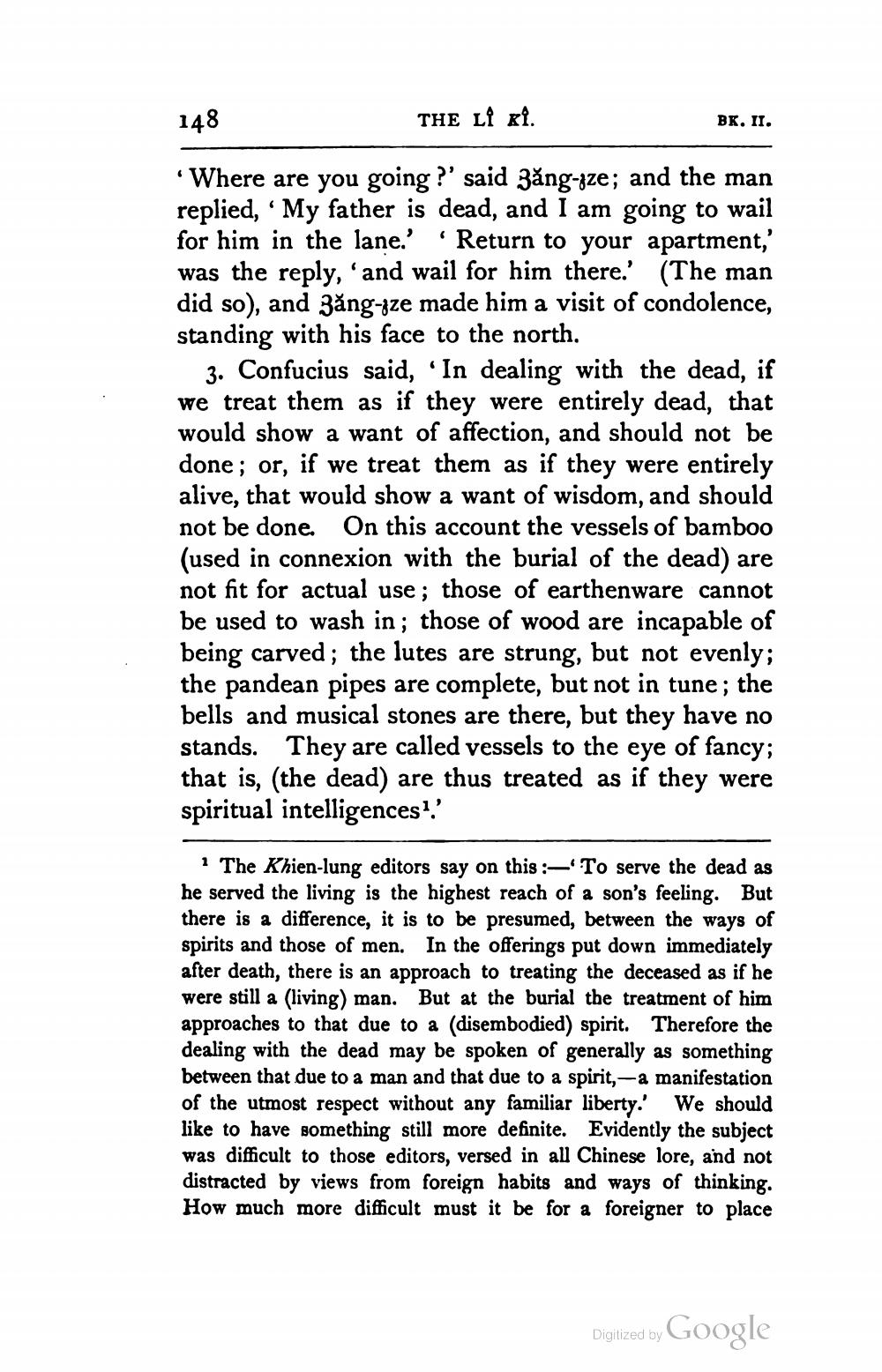________________
148
THE LÎ kl.
BK. II.
•Where are you going ?' said 3ăng-gze; and the man replied, 'My father is dead, and I am going to wail for him in the lane.' 'Return to your apartment,' was the reply, and wail for him there. (The man did so), and 3ăng-zze made him a visit of condolence, standing with his face to the north.
3. Confucius said, 'In dealing with the dead, if we treat them as if they were entirely dead, that would show a want of affection, and should not be done; or, if we treat them as if they were entirely alive, that would show a want of wisdom, and should not be done. On this account the vessels of bamboo (used in connexion with the burial of the dead) are not fit for actual use; those of earthenware cannot be used to wash in; those of wood are incapable of being carved; the lutes are strung, but not evenly; the pandean pipes are complete, but not in tune; the bells and musical stones are there, but they have no stands. They are called vessels to the eye of fancy; that is, (the dead) are thus treated as if they were spiritual intelligences?'
1 The Khien-lung editors say on this : To serve the dead as he served the living is the highest reach of a son's feeling. But there is a difference, it is to be presumed, between the ways of spirits and those of men. In the offerings put down immediately after death, there is an approach to treating the deceased as if he were still a living) man. But at the burial the treatment of him approaches to that due to a (disembodied) spirit. Therefore the dealing with the dead may be spoken of generally as something between that due to a man and that due to a spirit,-a manifestation of the utmost respect without any familiar liberty. We should like to have something still more definite. Evidently the subject was difficult to those editors, versed in all Chinese lore, and not distracted by views from foreign habits and ways of thinking. How much more difficult must it be for a foreigner to place
Digitized by Google




